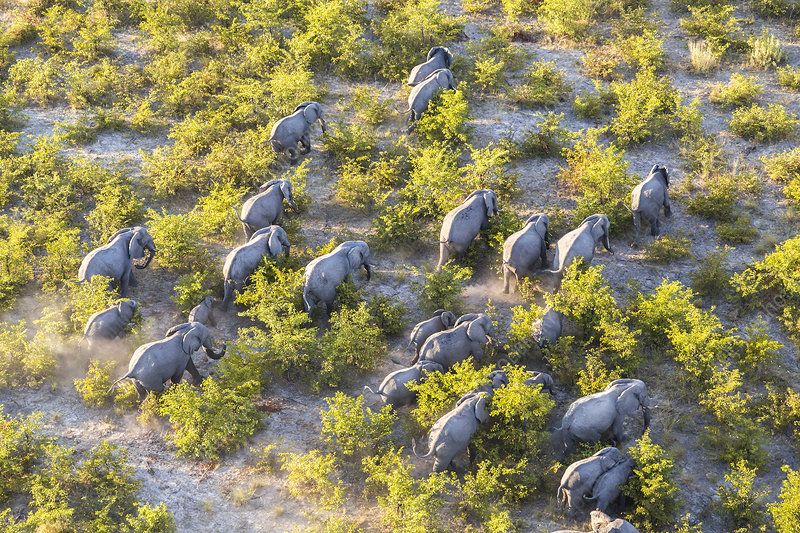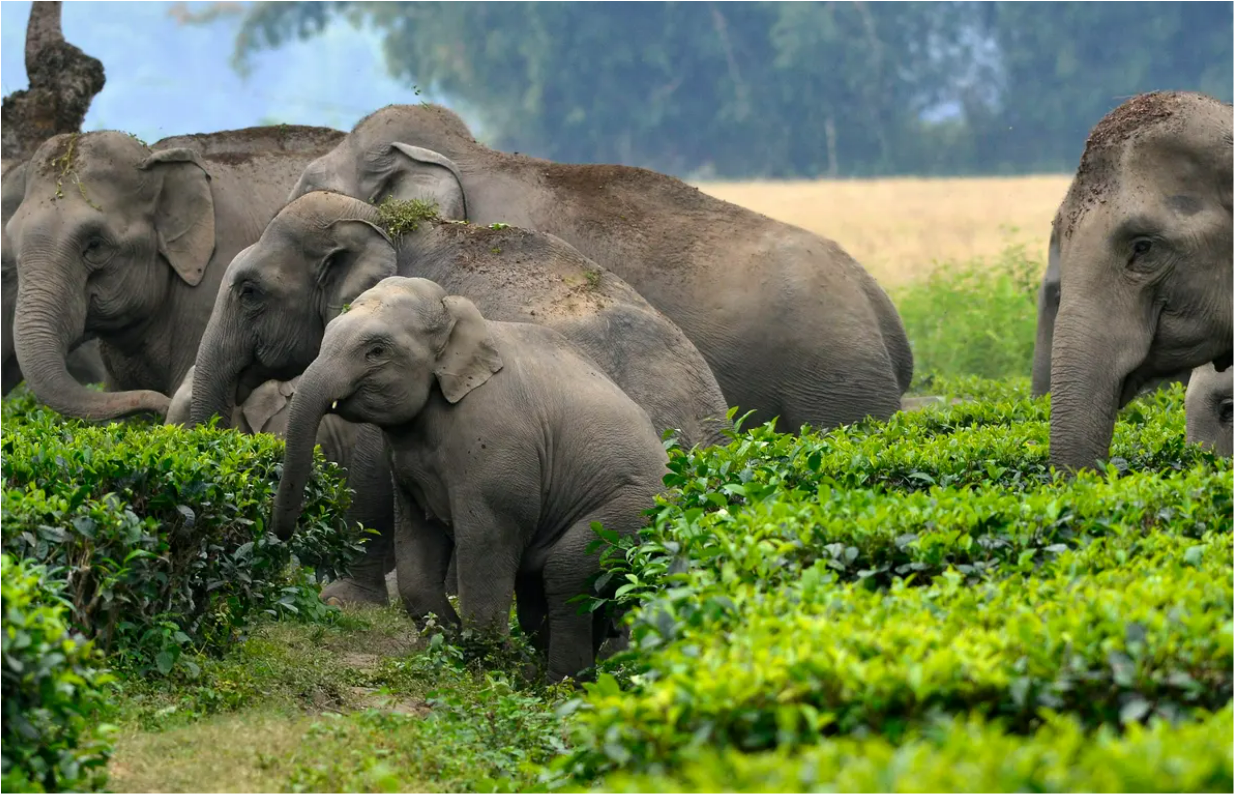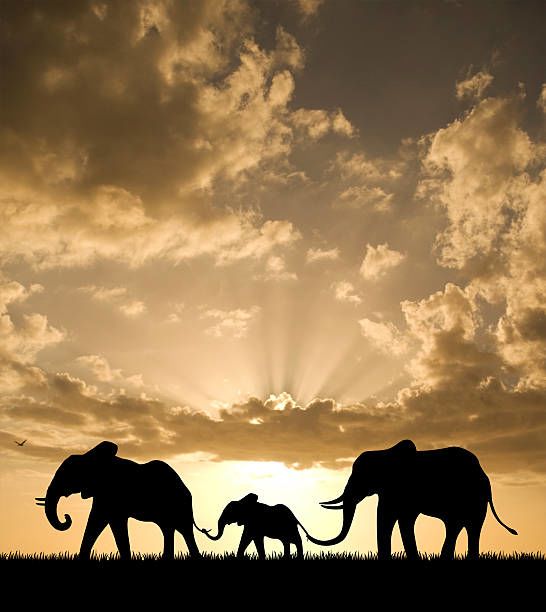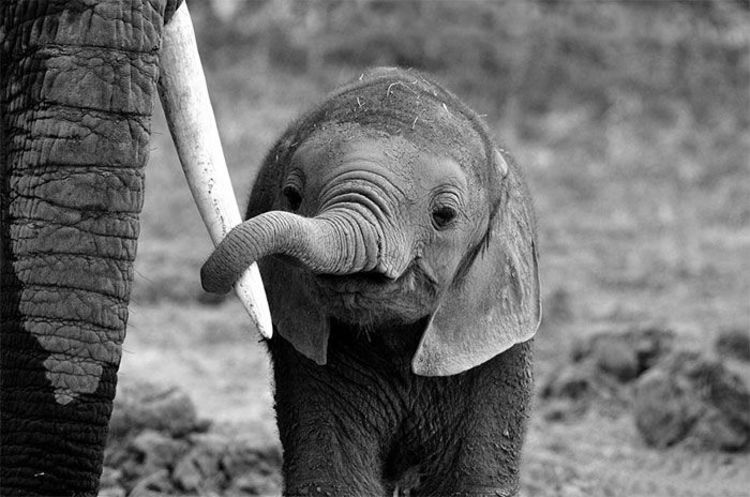Elephants in Botswana

Botswana is a home to 170 known mammal species. Apart from the BIG FIVE- Lion, Elephant, Buffalo, Leopard, Black rhino; the giraffes and zebras , other common species include aardwolves, caracals, cape foxes, banded mongooses, impalas, bat-eared foxes, Cape bushbucks, African civets, elands, gemsboks, kudus, Kirk's dik-dik, klipspringer, spotted hyenas, warthogs, and meerkats.
Botswana is the largest elephant habitat in the whole world accommodating about 150,000 elephants all throughout the country.
Every year, thousands of tourists come in Botswana to see the exquisite animals. Tourism is one of the three main economic pillars in Botswana. As much as tourism is built-up based on the wildlife, are the local people happy with all these animals?
There is always another part of the story, a story less popular to the rest of the world.
Elephant crop-raiding is one of the most relevant form of human elephant conflict in Botswana. During interviewing quite a few local people and Safari guides, I realized how ignorant the world is about their perspective. The local tribes traditionally live in the wild. Most of them said, they always have a fear in their mind. Every night making fire around the residence area to keep the lions, buffaloes and elephants away from destroying crops and killing their cattle is not easy.
I remember one man talking about his father being killed by an elephant when he went to find one of their cows. The stories broke my heart.
In spite of all these conflicts, when asked if they support conservation, 90% of the interviewees strongly agreed that they do. They explained how tourism is essential for their livelihood. "People from every part of the world come to see our animals. They buy our baskets and hear our story." said one interviewee.
Another person used a powerful term- "Double-edged sword" to describe conservation. On one hand it is essential to protect the wildlife, the ecosystem and food-chain. On the other hand, it is the main cause of sorrow for thousands of local farmers whose crops and cattle are at a risk of being destroyed by elephants and lions constantly.
Often times the people do not get the compensation promised by the government for the loss of crops of cattle. One of the safari guides told us a story of how he had 31 cattle and 28 of them were killed and injured by wild animal attacks. The government is still struggling to pay his compensation for his loss 2 years ago.
THE HARD TRUTH
When we arrived in Botswana, if I was asked if I support hunting and poaching, my answer would be a strong "NO".
However, during the past 2 months, hearing from my local people, understanding the human-wildlife conflict firsthand my perspective has changed in several ways.
Talking to one of the conservationist and veterinarian who left her job and life in the US, falling in love with Africa and to cure injured animals in Botswana, my perspective has broadened.
There are more elephants in Botswana than that it good for its ecology. As we care about conserving the magnificent elephants, we should first try to protect the people who live with them.
In Botswana, hunting and poaching of animals is a controversial issue. The debate between whether or not elephants should be killed has been going on for decades. There may never be a final solution to this conflict as opinions vary from people to people.
From my personal point of view, I believe we must not support the killing of elephants or other wild animals unless it is an obligation. Trophy-hunting and elephant-poaching for ivory are indeed inhuman acts. As the most advanced creature in the planet, we have responsibilities. We must be aware that our whim should not be the reason for their death. Their lives are precious.
Creating a safe place for the people whose home is the same as the wild animals , where they do not always live with a constant fear, is a commitment we all should make.
Usually fire is the only method the local people use to keep the animals way at night, since not everyone can afford expensive electric fence around their farms and residence. The electric fence is an expensive method for the people to keep elephants away. If the world comes forward to find a solution and to support the people, I believe hunting and poaching rates shall quickly will go down.



Are we happy that our grandchildren may never see an elephant?
“Of all African animals, the elephant is the most difficult for man to live with, yet its passing – if this must come – seems the most tragic of all. I can watch elephants (and elephants alone) for hours at a time, for sooner or later the elephant will do something very strange such as mow grass with its toenails or draw the tusks from the rotted carcass of another elephant and carry them off into the bush. There is mystery behind that masked gray visage, and ancient life force, delicate and mighty, awesome and enchanted, commanding the silence ordinarily reserved for mountain peaks, great fires, and the sea.”
― Peter Matthiessen, The Tree Where Man Was Born
“They say that somewhere in Africa the elephants have a secret grave where they go to lie down, unburden their wrinkled gray bodies, and soar away, light spirits at the end.”
― Robert R. McCammon, Boy's Life
“That is why, when you are close to an elephant, you feel so deeply. If they so choose, they have the ability to hold your sadness, so you may safely sit in the lonely seat of loss, still hopeful and full of love. Their great secret is that they know everything is a tide - not a black tide but the natural breath of life - in and out, in and out, and to be with them is to know this too.”
― Kira Jane Buxton, Hollow Kingdom
Lets save baby elephants!
Baby elephants are one of the most helplessly adorable creatures. They are very dependent on their mothers the first 2 years.
Baby orphan elephants needs a lot of love, care and support to survive.
Here are some links where you can contribute to raising a baby elephant in Botswana.
Elephant Havens
Sheldrick Wildlife Trust

About the author
Mishkatul Ain Nanjiba is a student at THINK Global 'School. She had an opportunity to learn about the Human Wildlife Conflict" in Botswana firsthand and is passionate about sharing her knowledge to the world through the art of writing.
Feedback
Email- rayan@thinkglobalschool.com
